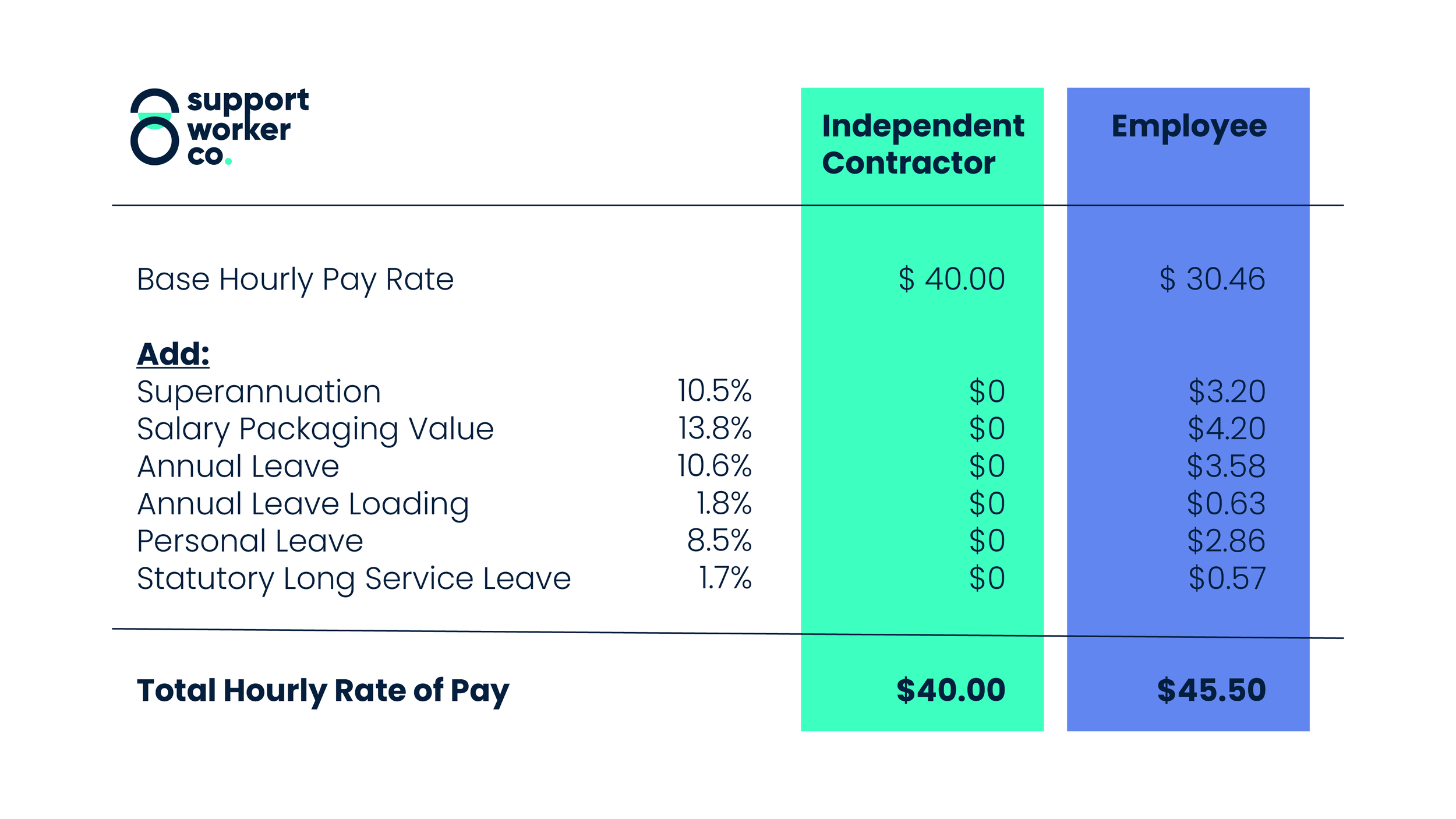NDIS Support Workers - Employee vs Independent Contractor – Who Is Better Off?
Disability Service providers across Australia are losing out in the hiring war for Support Worker talent to marketplace platforms and other direct to participant independent contractor engagement models.
By David Cuda – Managing Partner - Support Worker Co.
Support Workers are attracted to the bright lights of what appears to be a higher rate of pay as an Independent Contractor, but is this really the case?
In our calculation example below, after marking up the base hourly pay rate for all the additional financial benefits employees receive over independent contractors, the numbers tell a compelling story that employees should in fact be better off.
Our employee mark-up calculation is based on a SCHADS Award permanent part-time employee working 25 hours per week, classified as a Social and Community sector Level 2.1 worker. Additionally, the calculation is based on a shift worker working a weekday shift, employed by a not-for-profit organisation, who accesses the maximum Salary Packaging benefits available for Living and Entertainment benefits.
Overall, in this example, a Support Worker engaged as an employee versus being an independent contractor is nearly 14% better off in their total hourly rate of pay:
If the employee was classified as a Level 2.2 Social and Community sector employee under the SCHADS Award, the employees hourly pay rate would be up to 17% better off in this example.
Employees – Other Financial Benefits Obtained
Support Workers engaged as an employee rather than an independent contractor obtain further financial benefits which increases their effective hourly rate of pay:
Employees do not have to personally pay for any insurance premiums or insurance excesses for Public Liability, Professional Indemnity and Workers Compensation.
Employers take care of all the employees Australian Tax Office obligations which saves the employee costs and time.
Furthermore, Support Workers employed by reputable Disability Support providers should receive many other benefits at no cost to them such as employee assistance programs, induction, training, de-briefing, supervision, mentoring and established career progression pathways.
What Next?
We encourage Disability Support providers to perform the financial hourly pay rate comparison exercise and use this as a key marketing tool to assist in the war for attraction and retention of Support Workers to highlight all the benefits of being an employee versus the independent contractor marketplace platforms offering.


